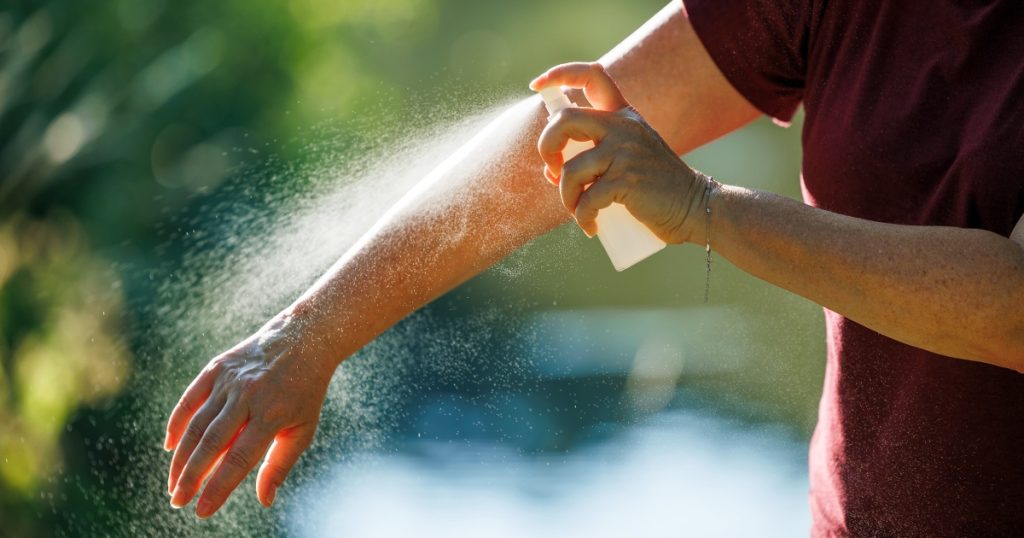Mosquitoes are not only annoying, but they can also spread potentially life-threatening infectious diseases such as eastern equine encephalitis, West Nile virus, and dengue fever. This year, at least five states have reported cases of eastern equine encephalitis, with Massachusetts experiencing its first outbreak since 2020. West Nile virus, the leading cause of mosquito-borne disease in the U.S., has already spread earlier than expected with at least 33 states reporting cases totaling 289. Additionally, the CDC issued a health alert for rising cases of dengue fever, a tropical disease that half of the world’s population is at risk of contracting, including in the Southeastern U.S.
In order to prevent mosquito bites, it is crucial to take precautions such as wearing mosquito repellent. Homemade mosquito repellants are not recommended as they are not as effective as EPA-registered insect repellents. Homemade repellents typically include ingredients like apple cider vinegar, witch hazel, and essential oils, but their effectiveness is unknown and may not provide adequate protection from insects. The CDC advises using only EPA-registered products to protect against mosquito-borne illnesses and recommends checking for active ingredients like DEET, picaridin, oil of lemon eucalyptus (OLE), IR 3535, PMD, or 2-undecanone in insect repellents.
DEET, picaridin, and permethrin are common active ingredients found in EPA-registered insect repellents that are effective at keeping mosquitoes away. DEET repels ticks as well as mosquitoes, while picaridin is less oily and has a better smell, but does not protect against ticks. Dr. Alison Ehrlich highlights oil of lemon eucalyptus as an effective plant-derived repellent derived from the lemon-scented gum eucalyptus plant. However, products containing oil of lemon eucalyptus should be avoided in children under 3 years of age. Some factors to consider when selecting a repellent include how long the protection lasts, how often to reapply, whether it is suitable for adults or children, and personal preferences for natural or pharmacological products.
To prevent mosquitoes naturally, it is important to control mosquitoes inside and outside the home by emptying any collections of water, using screens for doors and windows, using foggers and outdoor insect sprays, minimizing time outside at dusk, and using air conditioning when possible. Additionally, physically avoiding mosquitoes by sleeping inside with windows closed, staying in screened-in areas, and wearing long, loose-fitting clothing when outside can help prevent mosquito bites. It is essential to take these precautions, especially in areas where mosquito-borne diseases are prevalent, to reduce the risk of contracting potentially dangerous illnesses transmitted by mosquitoes.


